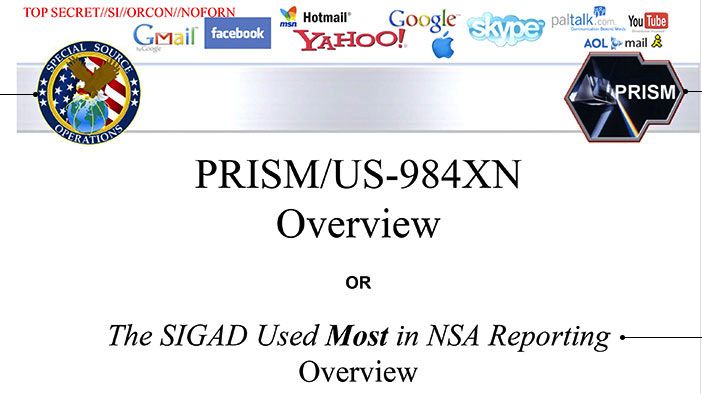Facebook and Microsoft release figures on government data requests
Google and Twitter holding out for specifics on FISA

Sign up for breaking news, reviews, opinion, top tech deals, and more.
You are now subscribed
Your newsletter sign-up was successful
Facebook and Microsoft have disclosed how many government requests they have received for user data following the Prism surveillance scandal that's enveloped the tech world.
Following reports on Friday, which claimed Facebook had been pushing for transparency, it has now been granted permission to disclose the volume of requests from law enforcement and agencies like the NSA.
So here's the nitty gritty: In the six months leading up to the end of December 2012, Facebook said it received between 8,000 and 9,000 requests relating to up to 18,000 to 19,000 individual profiles.
These requests, the company said, spanned cases like sheriffs hunting missing children, police investigating an assault, marshalls tracking a fugitive or the NSA probing a terrorist threat.
No specifics on FISA
In a blog post Facebook reiterated that, of these requests, some are rejected outright, while it often asks the government to scale back requests, while sometimes it simply doesn't provide all of the details requested.
Importantly, what the figures don't state is how many of those requests were made or granted under the controversial Foreign Surveillance Intelligence Act (FISA), but Facebook said it will continue to push for that data to be revealed.
The social network wrote: "We will continue to be vigilant in protecting our users' data from unwarranted government requests, and we will continue to push all governments to be as transparent as possible."
Sign up for breaking news, reviews, opinion, top tech deals, and more.
'Great start,' says Microsoft
Soon after Facebook's disclosure, Microsoft followed up by revealing it had been subject to 6,000 to 7,000 requests in relation to 31,000 to 32,000 accounts, in the six months leading up to December 31 2012.
Those requests spanned "criminal and national security warrants, subpoenas and orders," from local, state and national agencies, but again the company said it wasn't allowed to be more specific in relation to FISA requests.
In a blog post, John Frank, Microsoft's Vice President & Deputy General Counsel, said the company will continue to push for more information.
He wrote: "We appreciate the effort by U.S. government today to allow us to report more information. We understand they have to weigh carefully the impacts on national security of allowing more disclosures. With more time, we hope they will take further steps. Transparency alone may not be enough to restore public confidence, but it's a great place to start."
Google and Twitter want specifics
Meanwhile, both Google and Twitter have shunned the opportunity to make similar disclosures, with the former stating that lumping criminal requests in with national security requests would be a backward step.
In a statement Google told AllThingsD: "We have always believed that it's important to differentiate between different types of government requests. We already publish criminal requests separately from National Security Letters. Lumping the two categories together would be a step back for users. Our request to the government is clear: to be able to publish aggregate numbers of national security requests, including FISA disclosures, separately."
In a tweet, Twitter's legal director Benjamin Lee concurred with Google's assessment. He wrote: "We agree with @google: It's important to be able to publish numbers of national security requests—including FISA disclosures—separately."
Google has protested its innocence during the last week, writing to the government to request permission to release the information. Twitter had been somewhat incubated from the criticism following reports it had been one of the few companies to take a hard-line stance with the government.
So there you have it. Is this the first step towards greater transparency over what the US government is seeking through its controversial PRISM surveillance scheme or simply a little appeasement in the hope that the scandal will die down? The onus is now on tech companies to keep pushing.
A technology journalist, writer and videographer of many magazines and websites including T3, Gadget Magazine and TechRadar.com. He specializes in applications for smartphones, tablets and handheld devices, with bylines also at The Guardian, WIRED, Trusted Reviews and Wareable. Chris is also the podcast host for The Liverpool Way. As well as tech and football, Chris is a pop-punk fan and enjoys the art of wrasslin'.
